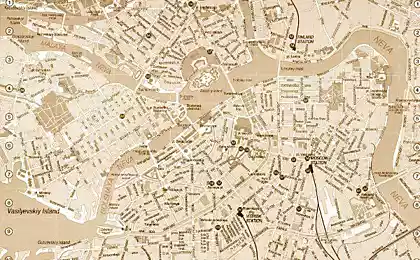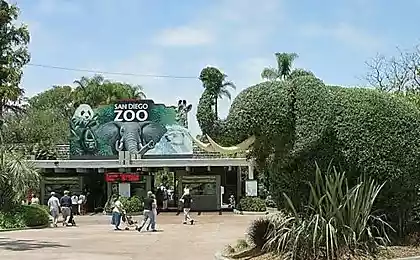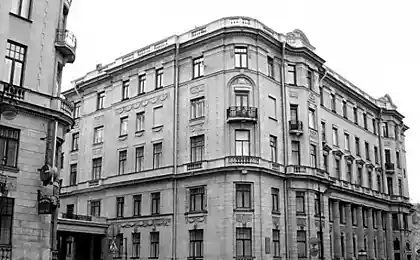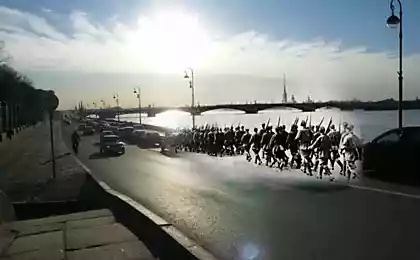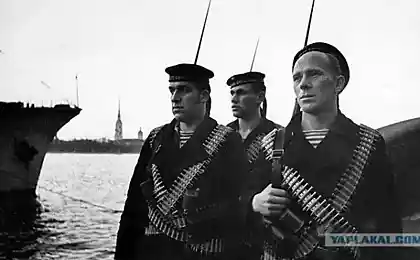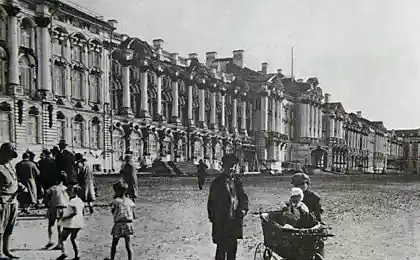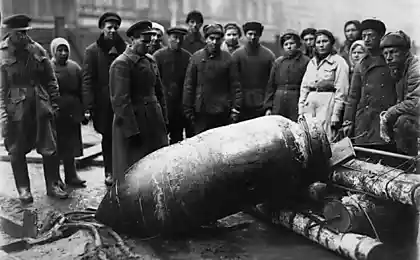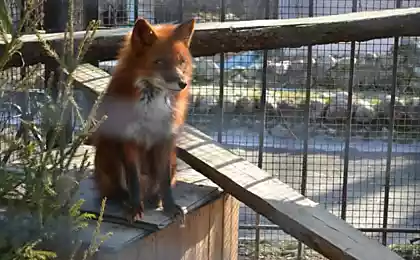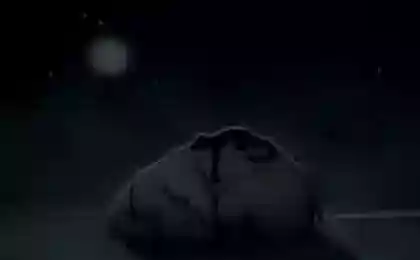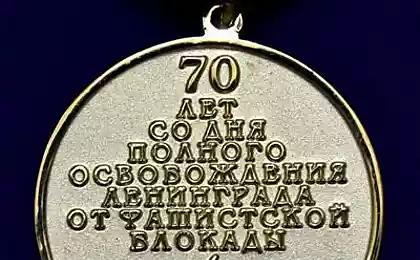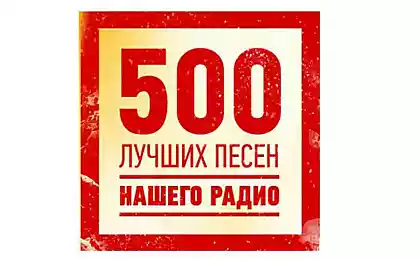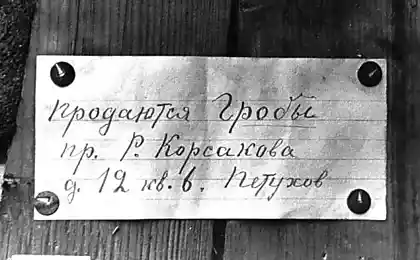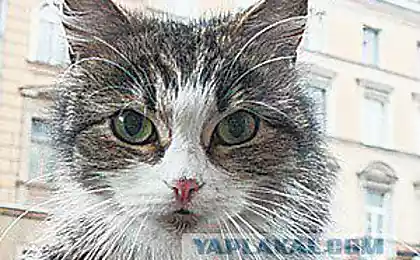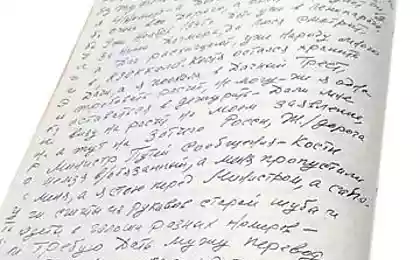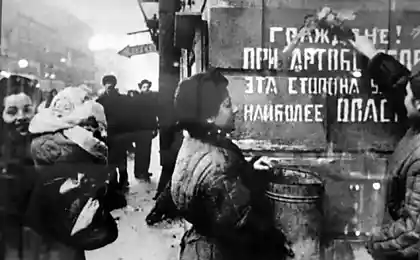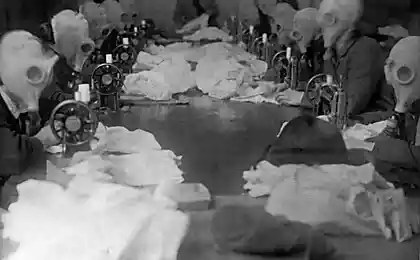1282
Zoo during the siege
The Siege of Leningrad is perhaps one of the most tragic and heroic pages in the history of the Great Patriotic War. According to Hitler's plan, the city had to be destroyed together with the forces defend it. However, failing to break through the defense of the city, the Germans deprived to take the city into submission. Then everybody had hard, but there were people who tried a last effort to save not only themselves and their families, but also the animals in the Leningrad Zoo. VC. Buriak and elephant Betty. 1932.
How is it possible - to save more than one hundred and sixty animals and birds in the city, whose streets and then bursting enemy shells, which completely stopped the supply of electricity, which resulted in the shutdown of water supply and sewage system, where they just do not what to feed?
Of course, the staff of the zoo before the siege tried to save unique animals. As a matter of urgency to Kazan was removed about 80 animals, among whom were black panthers, tigers, polar bears, the American tapir and a huge rhinoceros. However, to take all failed.
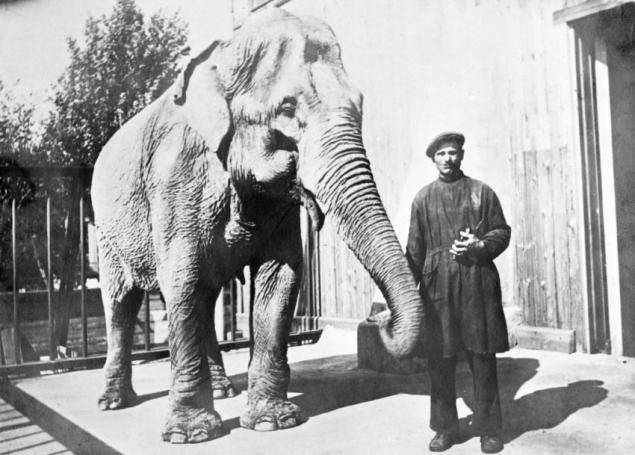
Entrance to the animal park. Postcard. 1920.
About sixty inhabitants of the zoo in the beginning of the war were in Belarus. They were brought to Vitebsk to show local children. However, the plans of people have been destroyed so suddenly the war. To escape the bombings, zoo employees tried to save as many animals.
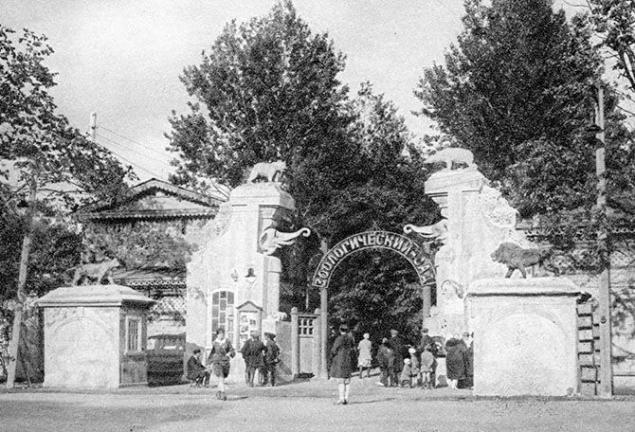
Among their wards he was also the American crocodile. Unfortunately, they could not take him, as for the movement he needed special conditions. Someone suggested to let the crocodile in the water of the Western Dvina, supported this idea, and heat-loving reptile went into free-swimming. About his future so no one knew.
In the Leningrad before the bombing of the people they were forced to shoot the remaining large carnivores. Of course it was a pity no innocent animals, but leave them meant to endanger the inhabitants of the city: once free in the destruction of cells by shells, they could go hunting.
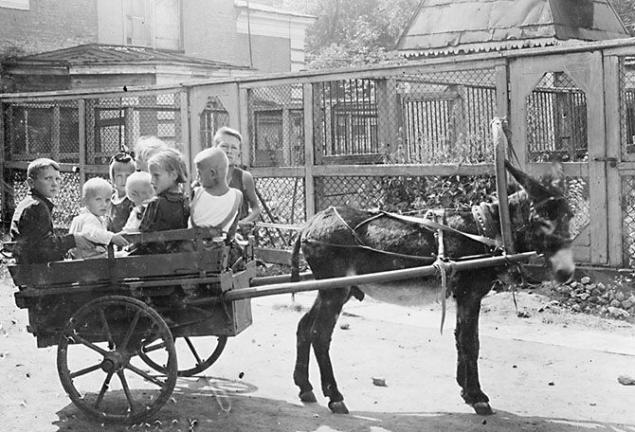
Hippo Beauty. 1935.
In early September, forty-one, Leningrad was surrounded. By that time the zoo were bison, deer, elephant Batty, hippopotamus Beauty, trained bears, cubs, cubs, seal, two donkeys, monkeys, ostriches, black vulture and a variety of small animals. Oh, and they had a hard time during the bombing!
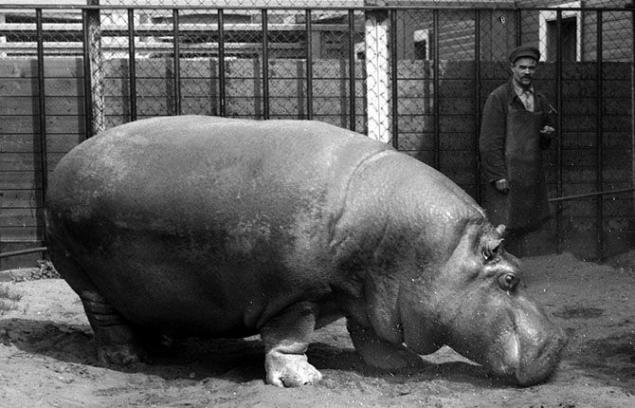
Ruins elephant
Most animals in horror rushed through the cells, growling with fear bears, birds were slaughtered in a corner, but the chamois, on the other hand, for some reason climbed the hill and stood there, waiting for the end of fire. Elephant Batty, barely hearing the siren sounds, quickly set off in his house. It was not her other refuge. Unfortunately, September 8 right next to her aviary exploded one of the three high-explosive bombs dropped from a German bomber that killed the caretaker and mortally wounded the very Batty. The poor girl died in 15 minutes directly to the ruins of the elephant. She was buried at the zoo.
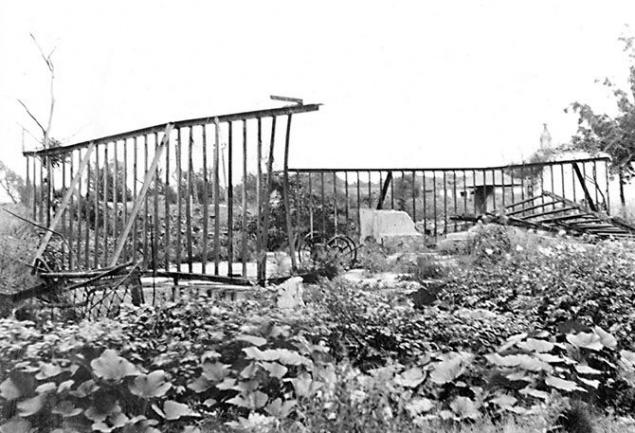
The dead Betty. September 10, 1941.
In that terrible night and killed smart and funny bears cubs. Monkey walls were destroyed, because of what primates scattered around the neighborhood. In the morning the staff collected them, trembling with fear throughout the city. Hulking bison fell into a funnel. People just do not have the strength to pull him out of there, so they built a deck and lured him pieces of hay, spreading them from the bottom to the edge of the pit.
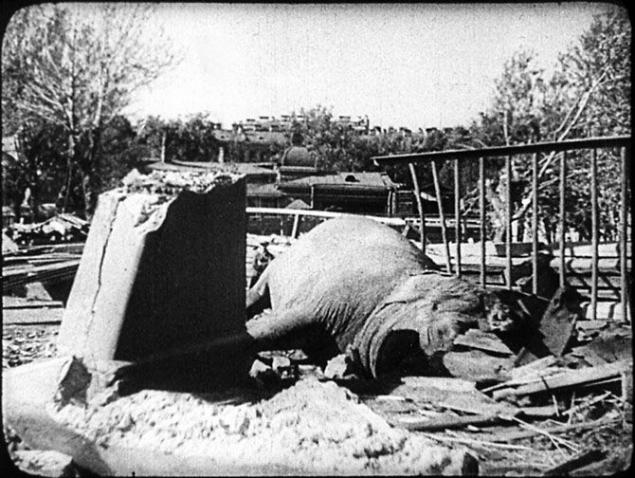
Ruins elephant. 1941.
The other night was wounded goat and a couple of deer. The employee did Konovalov animal dressing, shared with them their own bread and put them on their feet. However, the poor fellows killed during another fire, which also took away a huge tiger and buffalo.
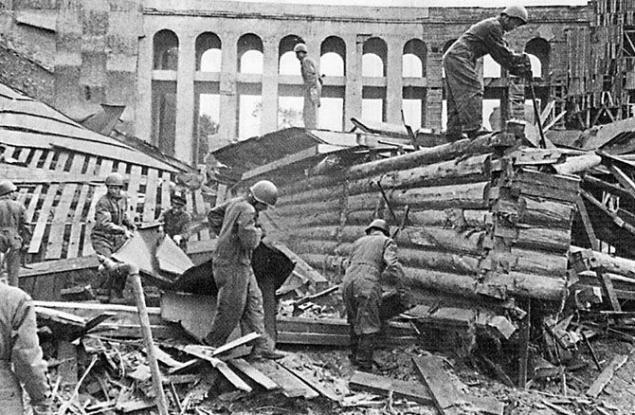
Places hits bombs. 1941.
It is not easy and had a hippo beauty who was brought to the zoo with Batty back in 1911. Of course, she was lucky a lot more than her unhappy friend: she survived and lived a long happy life, but without the selfless assistance Evdokia Dasha miracle would have happened. The fact that the skin of the hippopotamus to be constantly wetted with water, otherwise it will quickly dry and covered with bloody cracks. And in the winter of forty-one city water was not working and the pool Belle remained empty.
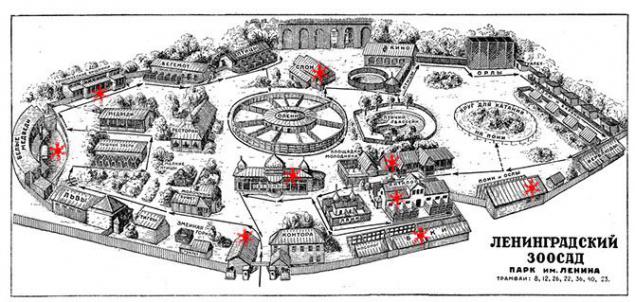
EI Dasha at the hippo Beauty. 1943.
What to do? Evdokia Ivanovna every day brought to the sled of Neva sorokavedernuyu barrel of water. Water is heated and poured over her poor hippopotamus. Cracks greased camphor ointment isstrachivaya to a kilogram a day. Soon Beauty skin has healed and she was able to hide with dignity under water during the bombing. She lived until 1951, and died of old age, not earning any chronic disease. "Here it is, hardening of the blockade!" - Said admiringly afterwards veterinarians.
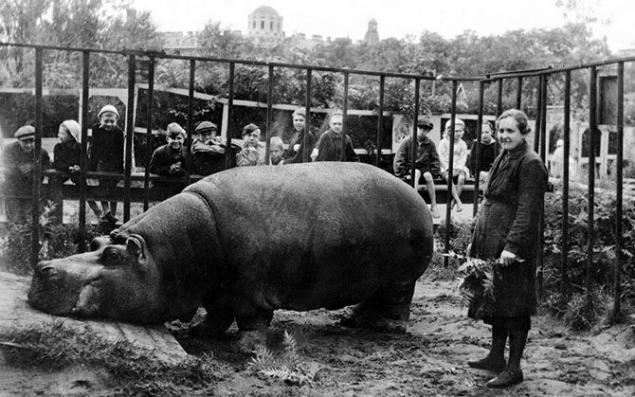
Group of camels on the background of the American mountains. 1936.
Of course, in those terrible years, the zoo is not funded, and the survival of animals is completely dependent on its employees. In the first months of the war, they were collected in the fields of corpses shells horses, risking their lives, cleaned vegetables from the fields. When this opportunity was lost, people mowed grass with sickles remaining in all possible points of the city, collecting acorns and rowan. In the spring of all the free territory was turned into vegetable gardens where they grow cabbage, potatoes, oats and turnips.
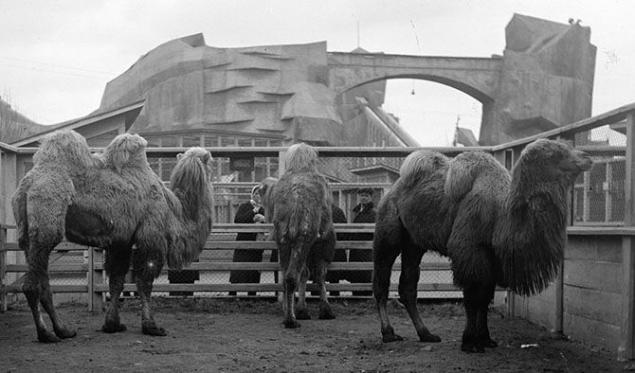
Black vulture Vera. 1946.
But you can only save animals vegetarian, but what about the others? If bears are outraged, yet they ate minced vegetables and herbs that the cubs and neck flatly refused such a diet. For their sake, they found a stray rabbit skins, stuffed with a mixture of grasses, bagasse and Khryapa and lubricates the carcass outside the cod-liver oil. So it was possible not to starve finicky predators.
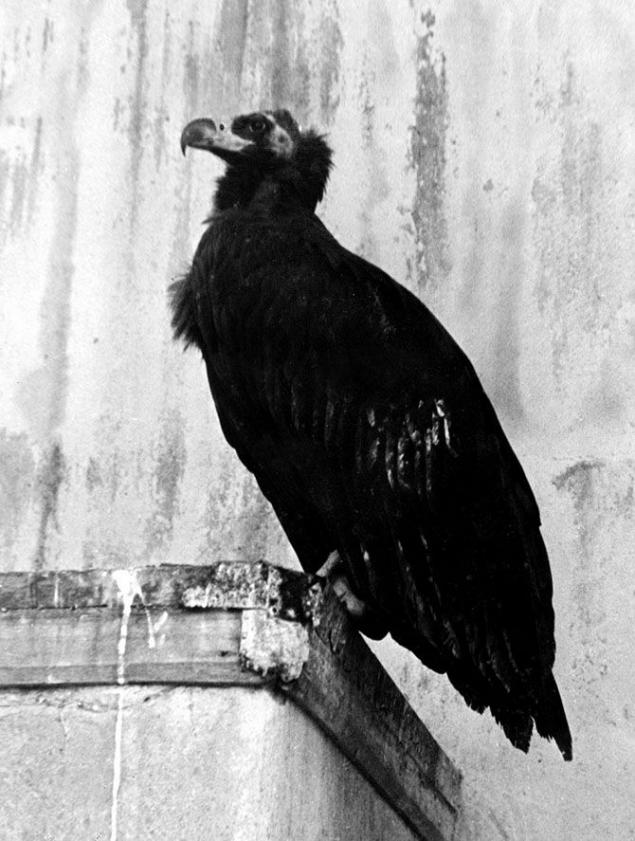
Nilgai Lighthouse. 1946.
Birds of prey in this mixture was added a fish. Vultures have only agreed soaked salted fish. But the most intractable turned golden eagle, for which people had to catch rats.
It is known that the adult daily hippopotamus should receive 36 to 40 kg of feed. Of course, in the years of the blockade and the speech could not be of such a "feast." Belle was given 4-6 kg of a mixture of herbs, vegetables and cake, adding to 30 kg of sawdust steamed just to fill her stomach.
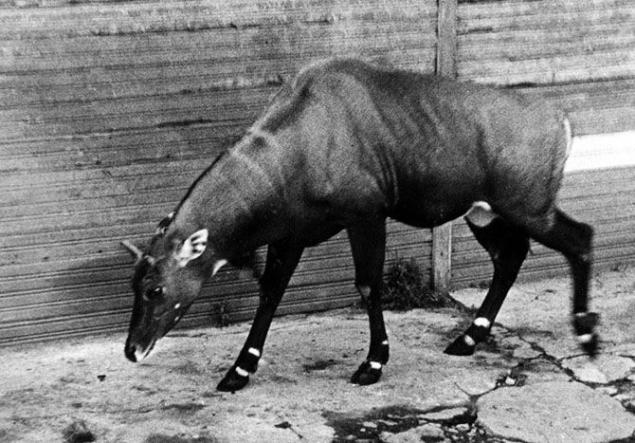
Area young. 30s.
In November 1941, the zoo has been refilled: at hamadryad Elsa born baby. Mother's milk was not, however, a local hospital daily singled little donor milk, so gamadrilchik able to survive.
Surprisingly, however Leningrad Zoo is closed only in the winter of 41-42-ies. In the spring of exhausted workers were clearing paths and repaired cages to let the first summer visitors. 162 animals exhibited. During the summer, they came to see about 7400 in Leningrad, which proves that the need for such a peaceful establishment in those terrible years.
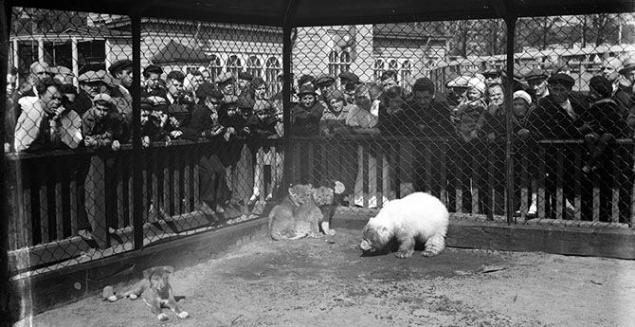
The team Lenzoosada. The spring of 1945.
Many ministers spent the night right in the zoo, not wanting to leave his players for a moment. There were few - only two dozen, but it was not enough to save many lives. 16 people were awarded the medal "For the Defense of Leningrad", and the zoo was decided not to rename, to preserve the memory of the heroism of officers blockade.
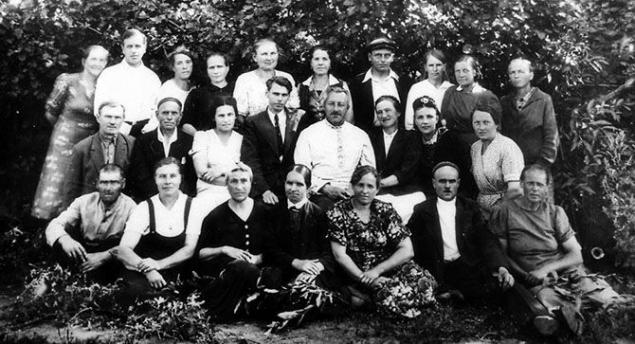
Source: www.zoopicture.ru
How is it possible - to save more than one hundred and sixty animals and birds in the city, whose streets and then bursting enemy shells, which completely stopped the supply of electricity, which resulted in the shutdown of water supply and sewage system, where they just do not what to feed?
Of course, the staff of the zoo before the siege tried to save unique animals. As a matter of urgency to Kazan was removed about 80 animals, among whom were black panthers, tigers, polar bears, the American tapir and a huge rhinoceros. However, to take all failed.

Entrance to the animal park. Postcard. 1920.
About sixty inhabitants of the zoo in the beginning of the war were in Belarus. They were brought to Vitebsk to show local children. However, the plans of people have been destroyed so suddenly the war. To escape the bombings, zoo employees tried to save as many animals.

Among their wards he was also the American crocodile. Unfortunately, they could not take him, as for the movement he needed special conditions. Someone suggested to let the crocodile in the water of the Western Dvina, supported this idea, and heat-loving reptile went into free-swimming. About his future so no one knew.
In the Leningrad before the bombing of the people they were forced to shoot the remaining large carnivores. Of course it was a pity no innocent animals, but leave them meant to endanger the inhabitants of the city: once free in the destruction of cells by shells, they could go hunting.

Hippo Beauty. 1935.
In early September, forty-one, Leningrad was surrounded. By that time the zoo were bison, deer, elephant Batty, hippopotamus Beauty, trained bears, cubs, cubs, seal, two donkeys, monkeys, ostriches, black vulture and a variety of small animals. Oh, and they had a hard time during the bombing!

Ruins elephant
Most animals in horror rushed through the cells, growling with fear bears, birds were slaughtered in a corner, but the chamois, on the other hand, for some reason climbed the hill and stood there, waiting for the end of fire. Elephant Batty, barely hearing the siren sounds, quickly set off in his house. It was not her other refuge. Unfortunately, September 8 right next to her aviary exploded one of the three high-explosive bombs dropped from a German bomber that killed the caretaker and mortally wounded the very Batty. The poor girl died in 15 minutes directly to the ruins of the elephant. She was buried at the zoo.

The dead Betty. September 10, 1941.
In that terrible night and killed smart and funny bears cubs. Monkey walls were destroyed, because of what primates scattered around the neighborhood. In the morning the staff collected them, trembling with fear throughout the city. Hulking bison fell into a funnel. People just do not have the strength to pull him out of there, so they built a deck and lured him pieces of hay, spreading them from the bottom to the edge of the pit.

Ruins elephant. 1941.
The other night was wounded goat and a couple of deer. The employee did Konovalov animal dressing, shared with them their own bread and put them on their feet. However, the poor fellows killed during another fire, which also took away a huge tiger and buffalo.

Places hits bombs. 1941.
It is not easy and had a hippo beauty who was brought to the zoo with Batty back in 1911. Of course, she was lucky a lot more than her unhappy friend: she survived and lived a long happy life, but without the selfless assistance Evdokia Dasha miracle would have happened. The fact that the skin of the hippopotamus to be constantly wetted with water, otherwise it will quickly dry and covered with bloody cracks. And in the winter of forty-one city water was not working and the pool Belle remained empty.

EI Dasha at the hippo Beauty. 1943.
What to do? Evdokia Ivanovna every day brought to the sled of Neva sorokavedernuyu barrel of water. Water is heated and poured over her poor hippopotamus. Cracks greased camphor ointment isstrachivaya to a kilogram a day. Soon Beauty skin has healed and she was able to hide with dignity under water during the bombing. She lived until 1951, and died of old age, not earning any chronic disease. "Here it is, hardening of the blockade!" - Said admiringly afterwards veterinarians.

Group of camels on the background of the American mountains. 1936.
Of course, in those terrible years, the zoo is not funded, and the survival of animals is completely dependent on its employees. In the first months of the war, they were collected in the fields of corpses shells horses, risking their lives, cleaned vegetables from the fields. When this opportunity was lost, people mowed grass with sickles remaining in all possible points of the city, collecting acorns and rowan. In the spring of all the free territory was turned into vegetable gardens where they grow cabbage, potatoes, oats and turnips.

Black vulture Vera. 1946.
But you can only save animals vegetarian, but what about the others? If bears are outraged, yet they ate minced vegetables and herbs that the cubs and neck flatly refused such a diet. For their sake, they found a stray rabbit skins, stuffed with a mixture of grasses, bagasse and Khryapa and lubricates the carcass outside the cod-liver oil. So it was possible not to starve finicky predators.

Nilgai Lighthouse. 1946.
Birds of prey in this mixture was added a fish. Vultures have only agreed soaked salted fish. But the most intractable turned golden eagle, for which people had to catch rats.
It is known that the adult daily hippopotamus should receive 36 to 40 kg of feed. Of course, in the years of the blockade and the speech could not be of such a "feast." Belle was given 4-6 kg of a mixture of herbs, vegetables and cake, adding to 30 kg of sawdust steamed just to fill her stomach.

Area young. 30s.
In November 1941, the zoo has been refilled: at hamadryad Elsa born baby. Mother's milk was not, however, a local hospital daily singled little donor milk, so gamadrilchik able to survive.
Surprisingly, however Leningrad Zoo is closed only in the winter of 41-42-ies. In the spring of exhausted workers were clearing paths and repaired cages to let the first summer visitors. 162 animals exhibited. During the summer, they came to see about 7400 in Leningrad, which proves that the need for such a peaceful establishment in those terrible years.

The team Lenzoosada. The spring of 1945.
Many ministers spent the night right in the zoo, not wanting to leave his players for a moment. There were few - only two dozen, but it was not enough to save many lives. 16 people were awarded the medal "For the Defense of Leningrad", and the zoo was decided not to rename, to preserve the memory of the heroism of officers blockade.

Source: www.zoopicture.ru
